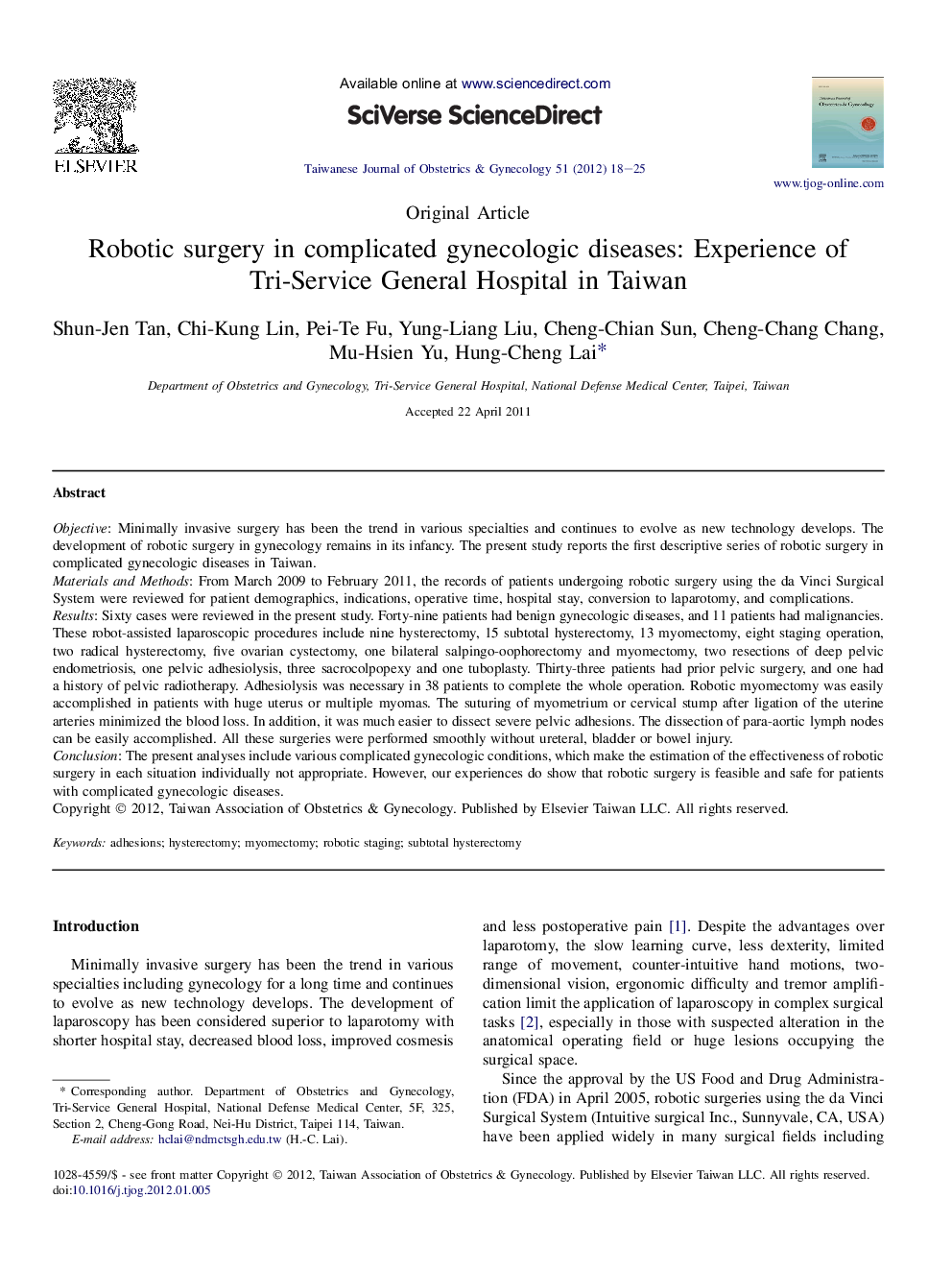| Article ID | Journal | Published Year | Pages | File Type |
|---|---|---|---|---|
| 3975314 | Taiwanese Journal of Obstetrics and Gynecology | 2012 | 8 Pages |
ObjectiveMinimally invasive surgery has been the trend in various specialties and continues to evolve as new technology develops. The development of robotic surgery in gynecology remains in its infancy. The present study reports the first descriptive series of robotic surgery in complicated gynecologic diseases in Taiwan.Materials and MethodsFrom March 2009 to February 2011, the records of patients undergoing robotic surgery using the da Vinci Surgical System were reviewed for patient demographics, indications, operative time, hospital stay, conversion to laparotomy, and complications.ResultsSixty cases were reviewed in the present study. Forty-nine patients had benign gynecologic diseases, and 11 patients had malignancies. These robot-assisted laparoscopic procedures include nine hysterectomy, 15 subtotal hysterectomy, 13 myomectomy, eight staging operation, two radical hysterectomy, five ovarian cystectomy, one bilateral salpingo-oophorectomy and myomectomy, two resections of deep pelvic endometriosis, one pelvic adhesiolysis, three sacrocolpopexy and one tuboplasty. Thirty-three patients had prior pelvic surgery, and one had a history of pelvic radiotherapy. Adhesiolysis was necessary in 38 patients to complete the whole operation. Robotic myomectomy was easily accomplished in patients with huge uterus or multiple myomas. The suturing of myometrium or cervical stump after ligation of the uterine arteries minimized the blood loss. In addition, it was much easier to dissect severe pelvic adhesions. The dissection of para-aortic lymph nodes can be easily accomplished. All these surgeries were performed smoothly without ureteral, bladder or bowel injury.ConclusionThe present analyses include various complicated gynecologic conditions, which make the estimation of the effectiveness of robotic surgery in each situation individually not appropriate. However, our experiences do show that robotic surgery is feasible and safe for patients with complicated gynecologic diseases.
